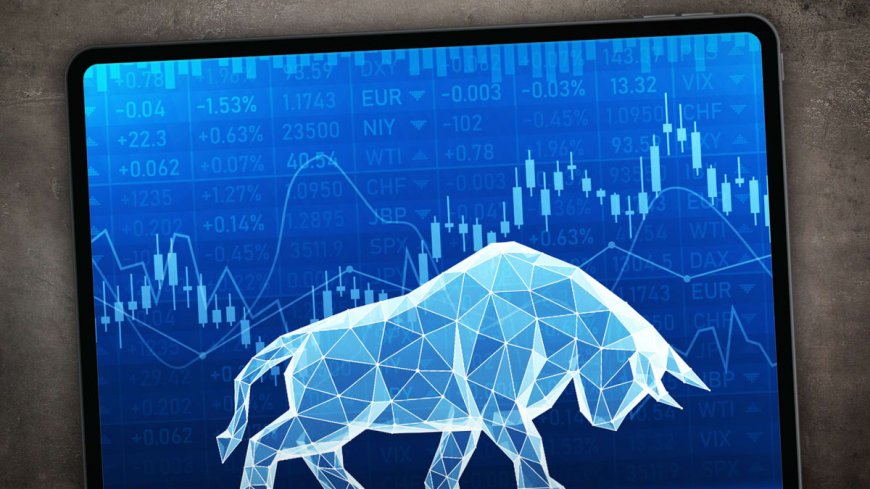Why Stock Investors Should Care About The Bond Market
When it comes to a recession, the stock market and the bond market are telling two very different stories.

Investors have been waiting for the recession to hit for a while now. But instead of a recession hitting, the S&P 500 recently entered a bull market, meaning that it is officially up 20% from its most recent low.
Even with these recession fears, the markets have been resilient throughout 2023, led by a handful of tech companies, like Nvidia and Microsoft, who have garnered a lot of investor excitement around artificial intelligence.
DON'T MISS: Jim Cramer Loves These Seven High-Performing Tech Stocks
Why It Hasn't Happened Yet
Since last year, the Federal Reserve has been raising rates to curtail high inflation. The Fed is trying to slow the economy, as a slower economy leads to lower inflation.
To accomplish this, the Fed's goal is to increase unemployment. Higher unemployment, according to the Fed, means fewer people can spend, which brings prices and inflation down.
But the labor market hasn't been cooperating. It has instead remained strong.
Job growth in May exceeded analyst estimates, and the unemployment rate has been historically low for months, remaining below 4% since Feb. 2022.
Since 2021, according to Andrew Hodge, a senior economist with the International Monetary Fund, demand for workers has exceeded supply, something that has increased wages. And higher wages, he said, mean higher prices and inflation.
The Fed decided June 14 to skip another interest rate hike, keeping its target range at 5% to 5.25%, but it signaled that more hikes will be coming.
"The higher interest rates would weaken the demand for workers and increase unemployment modestly," Hodge wrote. "This would reduce the pressure for large wage and price increases, particularly in the services sector, helping to lower inflation."
While a common definition of a recession involves two consecutive quarters of falling GDP, the U.S. isn't in a recession until the National Bureau of Economic Research declares a recession.
And they haven't done so, in part, experts say, due to that resilient labor market.
The Bond Market Is Signaling a Different Story
In the midst of this stronger-than-expected labor market and the burgeoning stock market, some think that the odds of a recession are shrinking, with Goldman Sachs reducing its chances of a recession to 25%.
But despite the apparent strength of the stock and labor market, the bond market is signaling a much different story.
Where the stock market is a place for investors to buy and sell equity in corporations, the bond market is a place for investors to buy and sell debt. When you buy a bond, you essentially lend your money for a set period of time, charging interest on the loan.
"Bond yield" is the return an investor will see on a bond. A yield curve refers to the relationship between bond yields and time.
A normal yield curve, according to Fidelity, gives long-term bonds (such as 10-year bonds) a higher yield than short-term bonds (such as three-month bonds). This higher yield over the long term is to compensate investors for taking the greater, longer risk.
The current yield curve, however, is inverted, meaning that short-term bonds have a higher yield than their long-term counterparts.
This is traditionally a predictor of a pending recession, CEO of Onshore Funding, John Kozey, CFA, told The Street. Yields go up when the economy is expanding, he said. Lower yields indicate the opposite reality.
The bond market is "signaling recession because of that inverted yield curve," something that is seemingly at odds with "stock market behavior which is saying 'hey, we're in a bull market.'"
And though the S&P is technically in bull territory, Kozey thinks that it is still too narrow -- meaning the bulk of companies in the index are not driving its gains -- an indicator that is more in line with the bond market's recession prediction.
"What scares people like myself is I didn't believe this market was real because there's a very narrow level of leadership," Kozey said. "These eight stocks, and then 20 stocks after that. There still isn't great participation."
That kind of narrow market, according to ClearBridge Investments, is "often a warning sign of rocky times ahead."
"In the past 50 years," Duke University finance professor Campbell Harvey told ABC News, "we have seen seven inverted interest rate curves."
"Each one was followed by a recession."
What's Your Reaction?

























































